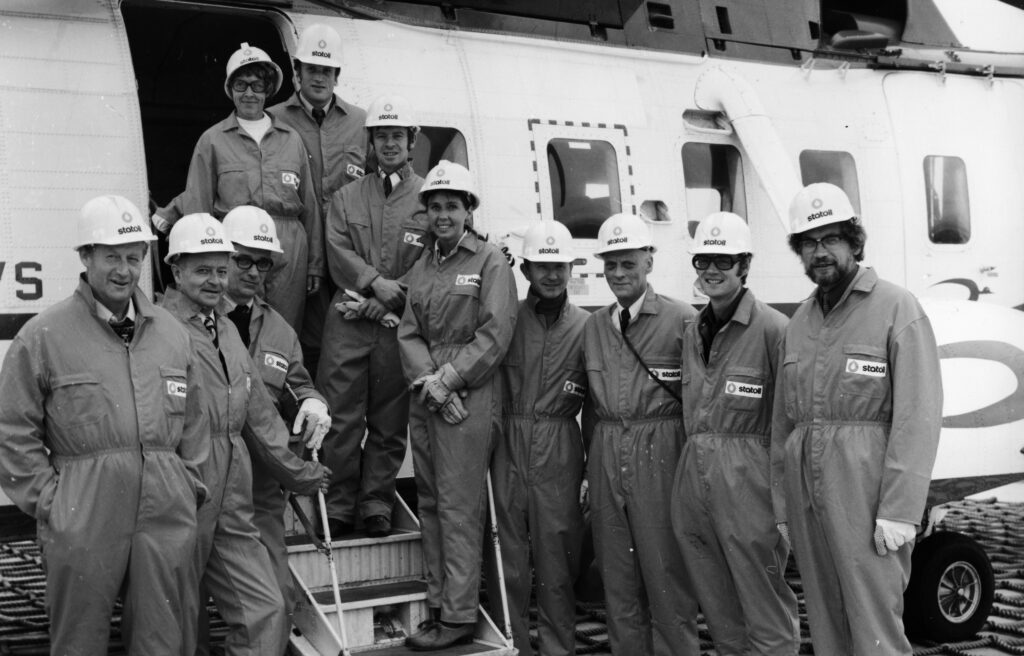A short-lived board

Hauge’s combative attitude found expression during the debate on parliamentary control of Statoil in the spring of 1974. Just 10 days after the Storting (parliament) approved his stance that the company should only submit its plans – and not its budget – once a year for parliamentary scrutiny, he was off the board.
Hauge had been in many battles with civil servants and political opponents during Statoil’s initial build-up, and his fighting style had aroused reactions. He was very direct and often obstinate, refusing to yield ground on issue after issue. When it suited him and Statoil, he ignored the ministry’s requests. Many civil servants eventually had enough of this behaviour.
As early as March 1974, the question of replacing him as chair had been raised in the industry ministry. Hauge responded to this threat by telling industry minister Ingvald Ulveseth: “I think it’ll be easier to find a new minister than a new chair of Statoil”.[REMOVE]Fotnote: Hanisch, Tore Jørgen and Nerheim, Gunnar, Fra vantro til overmot, vol 1, Norsk Oljehistorie, 1992: 318. Things nevertheless did not turn out that way.
Hauge was tired of the struggle. Chairing the board of the new oil company was a lot of work. He formulated it as follows in his formal letter of resignation, dated 26 April 1974:
On mature reflection, I have found that I must ask to be released from the post as chair of Statoil at the forthcoming annual general meeting of the company this spring. It transpires more and more that the post as chair of Statoil requires so much time and energy that I will be unable in the long run to combine it with my old positions and with my law practice. I have had to make a choice.[REMOVE]Fotnote: Njølstad, Olav, Jens Chr. Hauge – fullt og helt, 2008: 640.
Hauge did not wish to go alone, and asked Ulveseth to consider replacing the full board. Having all the directors place their position at the minister’s disposal would make his own departure less dramatic. An equally important consideration was securing a composition for the new board which would promote Statoil’s future growth. Both deputy chair Vidkunn Hveding and Per M Hanssen, his fellow Conservative, were replaced. They had expressed disagreement on a number of issues concerning the course staked out by Hauge and CEO Arve Johnsen.[REMOVE]Fotnote: Ibid: 643.

Hauge was replaced by former Labour minister Finn Lied, and professor Ole Myrvoll (a former Liberal) from the New People’s Party became deputy chair. They were joined by county governor Einar B Moxnes from the Centre Party and county council chair Ottar Vollan from Labour. Since only director who remained in place was Labour’s Aksel Fossen, this party had a majority on the new board – something Johnsen with his Labour background could be pleased about. The further development of the company could follow the planned course, even without Hauge at the helm.
The latter was nevertheless not entirely out of the picture. As a highly experienced lawyer, he was hired by Statoil on later occasions as a specialist on constitutional law.
Hveding also made a solid comeback to the main petroleum policy arena. As petroleum and energy minister in the Conservative minority government led by Kåre Willoch in 1981-83, he was cool over a potential Statoil takeover of the Statfjord operatorship from Mobil. He also wanted to ensure adequate political control of the company. After his term as minister, he served as deputy chair of Statoil in 1984-87. He was then strongly critical of Johnsen over cost overruns in the Mongstad refinery development. Hveding then stepped down together with the other directors, and the CEO had to resign.
arrow_backThe state oil company’s first public facePublic affairs department in key positionarrow_forward